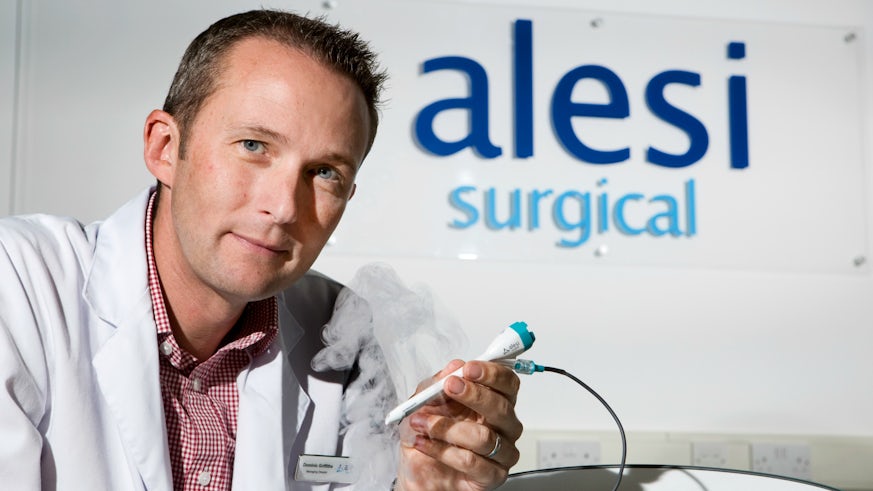Alesi Surgical raises £5.2m
13 June 2017

Cardiff University spin-out Alesi Surgical Limited has raised £5.2m from both new and existing investors.
The leading innovator of minimally invasive surgery technologies – including the world-first Ultravision device – has attracted investment from two leading med tech European venture capital firms, Panakes Partners and Earlybird, with continued support from Alesi Surgical’s existing shareholders, IP Group plc and Finance Wales Limited.
The funds will drive commercial expansion of both Alesi Surgical and Ultravision into the United States and other key markets worldwide, and aid additional research and development around the new Ultravision technology.
Alesi Surgical, based at Cardiff Medicentre, has also appointed three new directors, strengthening its board with key expertise. Joining as non-executive director Phil Cooper, previously President at Molnlycke Healthcare, is a recognised leader in global commercialisation and growth of privately owned companies in the med tech sector.
As part of the investment Mr Thom Rasche, Partner at Earlybird and previously Vice President Europe of Ethicon Endosurgery; and Mr Alessio Beverina, Founding Partner at Panakes Partners, will both join the board as investor directors.
Dr Dominic Griffiths, Managing Director of Alesi Surgical said: “Earlybird and Panakes are two highly respected European venture capital companies and in such a competitive funding environment their interest in Alesi and UltravisionTM speaks volumes for our potential..."
"With the three new additions to the board we have expanded our expertise in this market and having four corporate investors places us in a strong position for future growth.”
The funds have been raised following the recent approval of the company’s leading proprietary technology platform, UltravisionTM, by both the US FDA (Food and Drug Administration) and Japanese Ministry of Health, and the commercial traction it is already gaining in already approved markets in Europe and the Middle East.
The UltravisionTM system is the world’s first use of electrostatic technology to clear the vapour and particulate matter – so called “surgical smoke” – that is generated by modern surgical cutting instruments during abdominal keyhole (laparoscopic) surgery.
The revolutionary medical device produces a low-energy electrostatic charge and can greatly improve visibility for surgeons by actively eliminating surgical smoke as it is created by the cutting instrument. Minimising healthcare professionals’ exposure to surgical smoke is increasingly important worldwide because of concerns over the health risks of long-term exposure.
Cardiff University is Wales’s leading Higher Education Institution for innovation, ranked 7th in the UK and 45th in Europe for innovation by Thomson Reuters.





